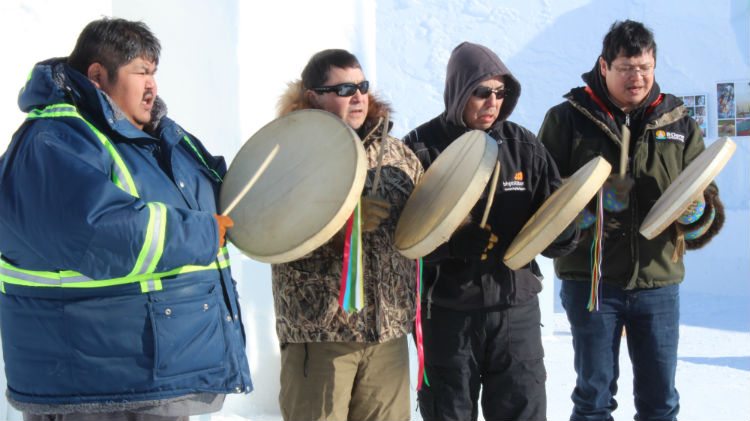Beginning Wednesday, July 17th from 2:30 to 3:30 p.m, the City of Yellowknife will be downtown in front of the Post Office on Franklin Avenue engaging with residents on its document, Reconciliation: Starting The Conversation, the first step towards the creation of the City’s Reconciliation Action Plan.
The document was adopted by Council on June 24th and was developed with the goal of building relationships and trust which will facilitate valuable community input that will confirm the foundation for how the City will build respectful relationships with, and create a more inclusive representation of, Indigenous Peoples within Yellowknife.
The City invites input from Indigenous governments, organizations, businesses, and all people who call Yellowknife and the surrounding area home. This document is intended to encourage ideas and recommendations on how the City can continue its path toward reconciliation.
The document states that the City will use the TRC Principles of Reconciliation as a compass in their work:
- The United Nations Declaration on the Rights of Indigenous Peoples as the framework for reconciliation at all levels and across all sectors of Canadian society.
- First Nations, Inuit, and Méti s peoples, as the original peoples of this country and as self-determining peoples, have Treaty, constitutional, and human rights that must be recognized and respected.
- Reconciliation is a process of healing relationships that requires public truth sharing, apology, and commemoration that acknowledge and redress past harms.
- Reconciliation requires constructive action on addressing the ongoing legacies of colonialism that have had destructive impacts on Aboriginal peoples’ education, cultures and languages, health, child welfare, administration of justice, and economic opportunities and prosperity.
- Reconciliation must create a more equitable and inclusive society by closing the gaps in social, health, and economic outcomes that exist between Aboriginal and non-Aboriginal Canadians.
- All Canadians, as Treaty peoples, share responsibility for establishing and maintaining mutually respectful relationships.
- The perspectives and understandings of Aboriginal Elders and Traditional Knowledge Keepers of the ethics, concepts, and practices of reconciliation are vital to long-term reconciliation.
- Supporting Aboriginal peoples’ cultural revitalization and integrating Indigenous knowledge systems, oral histories, laws, protocols, and connections to the land into the reconciliation process are essential.
- Reconciliation requires political will, joint leadership, trust-building, accountability, and transparency, as well as a substantial investment of resources.
- Reconciliation requires sustained public education and dialogue, including youth engagement, about the history and legacy of residential schools, Treaties, and Aboriginal rights, as well as the historical and contemporary contributions of Aboriginal peoples to Canadian society.
The engagements on July 17th, 24th, and August 21st will take place from 2:30 to 3:30 p.m. and the ones on July 31st, August 14th and September 4th will take place at 9:30 to 10:30 a.m.
During these engagements, City of Yellowknife representatives will be serving coffee and donuts in front of the Post Office while inviting residents to share their ideas, thoughts and feedback to be considered in the development of the Reconciliation Action Plan.





